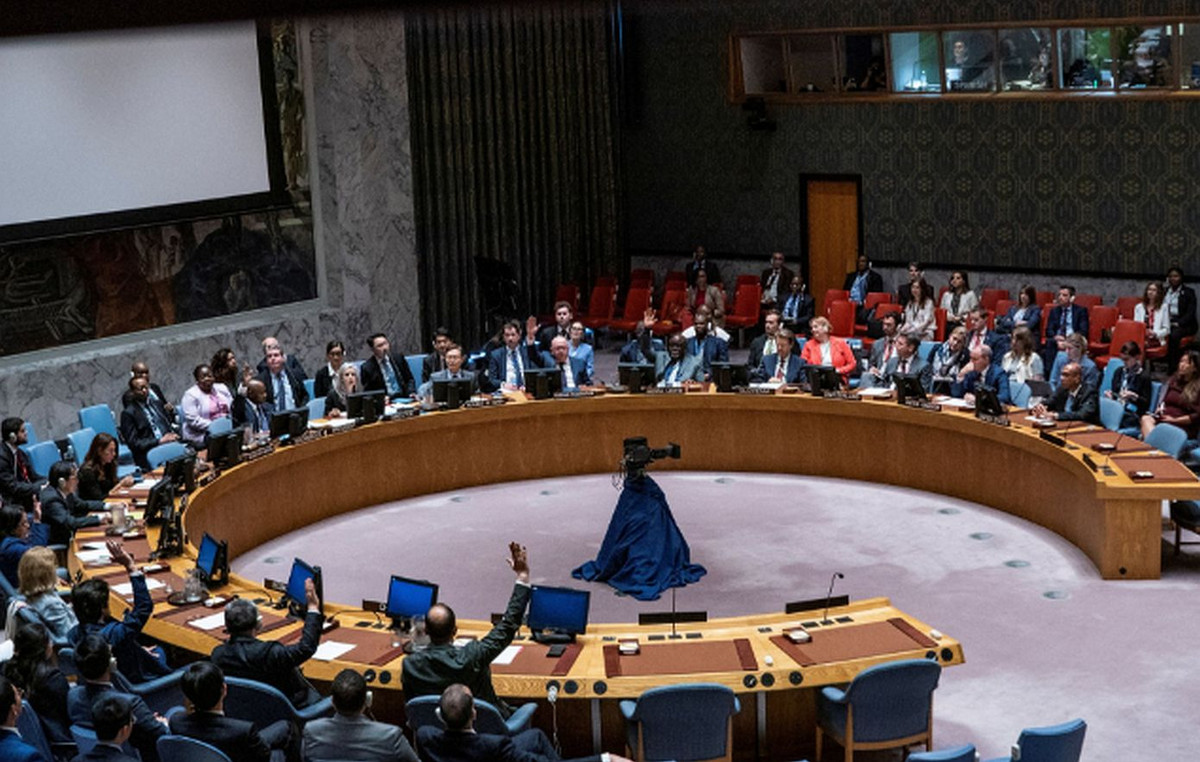“Before that I felt like one person, then another.” Sara Poma writes these words at the very beginning of her debut book, Courage will come (Harper Collins, pp. 288, €18.50; in bookstores from January 13). In narratology, which is the study of narrative forms, they call it turning point, turning point: it is when something happens to the protagonist or for which his life will never be the same again. The event to which Poma refers, however, has nothing to do with the subject to which she dedicates her book, i.e. the story of how she managed to reconstruct (at least in part, and where she failed, she put imagination) the story of Maria Silvia Spolato, the first woman who, during a feminist demonstration in Campo dei Fiori in Rome in 1972 – where even the beautiful Jane Fonda was immortalized with her fist raised – publicly declared her homosexuality. At a time when the idea of Pride didn’t even exist in the most avant-garde clubs on Christopher Street.
Sara Poma, from Pavia, is 47 years old and defines herself as a middle-aged woman, even if when she laughs she reminds me of Anjelica Huston as a girl. I’ve known her for a couple of years and, since then, she has become the author of two very successful podcasts – one, Carlaself-produced, and the other, Before, made for Chora Media, which is also the company where he currently holds the role of Head of Branded Content. The «before» to which he refers in those first lines is, in reality, a fall from his bicycle which took place a few years ago in Milan, where he lives: a blackout lasting a few minutes, waking up in an ambulance and an arm in a cast. A trivial thing, almost trivial, but looking closely, no watershed seems extraordinary. Yet, today, Sara defines that fall as “my personal pandemic, well before the pandemic”.
What do you mean?
«No longer being able to go around by bike, having to take public transport to get around, had forced me to stop, to take a breath, to face the things that came with a different spirit, just as the “real” pandemic would later do with some. That’s when I started listening to podcasts, which would eventually become my job. And then, years later, it was during the first lockdown that my first podcast was born, Carlaabout my grandmother’s life.
Let’s go back to the beginning. The first time you saw Maria Silvia Spolato she was dead and she was watching you, with ironic eyes and a blue wool cap, from the pages of a newspaper.
«At that time I was looking for a new story to tell and I only knew that it had to be that of a homosexual person more or less the same age as my grandmother. Then in the newspaper South Tyrol I read the news of this elderly woman, who died in a hospice in Bolzano, who in 1972 had lost her job because she had publicly declared her homosexuality».
What struck you about her?
«She had the face of someone who still had a lot of life. In the newspaper shot, she was wearing a shoulder bag and it looked like she was on her way to somewhere.”
In the book you call Maria Silvia your «alter ego».
«I wrote that at the beginning, because then doing research I realized that in reality our lives have been very different. I’ll give you an example: at a time when to do coming out there was a great risk, Maria Silvia had not decided to live her homosexuality at home, in secret, but to take to the streets with a placard. Maybe – and by telling you this maybe I show that I don’t have a great opinion of myself – I believe that, in those years, I would have preferred to live it in secret instead. Despite this objective diversity, however, in the book I still tried to tell the missing pieces of her life inspired by my own experience. And this is because, in terms of access to representation, I am convinced that I have much more in common with her, who grew up in the 1950s, than with an 18-year-old lesbian girl today».
In the book you tell about an episode that happened to you when you were 9 years old.
“My sister, older than me, had come home and was telling our mother, who was still alive – I would have lost her as a teenager – about a classmate of hers who had fallen in love with a girl and who risked being kicked out of the house by her family. That story, in her violent way, made me feel strange, different, even if she made me understand that “that” was something that existed ».
Were you afraid?
“I thought, and I vividly remember that feeling, ‘I’m screwed forever.’ Which she meant: I am condemned to be different from others, to a life of solitude. I wasn’t very happy to belong to that club at the time.”
Elizabeth Strout once said that we all have one story to tell. Which is yours?
«Although I am now a middle-aged woman, from the point of view of exploration I still feel immature and I ask myself many questions. One is: I told my grandmother’s story, partly my mother’s, my own, and now what will happen? Have I run out of this spectrum? What you tell me about Strout reassures me, because they have been very fast years and now I am afraid of the sense of emptiness ».
If I had to give a title to your story it would be: investigation into the mother. What relationship do you have with motherhood?
«I place myself in the perspective of a failed daughter, and I feel that she will always be that, whatever I tell – and in fact it is a thought that also recurs in the new series I am preparing for Chora. I don’t think she will become a mother, I’ve never had that desire, as I’ve always had that of being a daughter. And I realize that the attachment I feel towards people who are my mother’s age, or even older, comes from that, because I missed that part. It’s something I also see in my father, who lost his mother at the age of 14: we have the same disease, we who lost our parents when we were young. And the revelation that I had writing this book was realizing that, in reality, all the things I did I did thinking that my mother could be there to read them, to listen to them».
You write that, over the years, you had developed a kind of homophobia that led you to believe that deep down it was right, as a homosexual, not to be able to have a happy relationship.
«It was the conclusion to which the readings I had at my disposal at the time had led me, and for this reason I am convinced that, today, it is right to stop with the dramatic narratives of homosexuality of which I myself have been a victim. In the same way, however, stories like that of Maria Silvia, and some of her contemporaries, are important because they remind us that once upon a time coming out it was a matter of life and death. At the beginning of this work, I was convinced that I would find many people who, now in their eighties, would tell me about their peaceful life as homosexuals lived together with their partner: I didn’t find even one. Therefore I had to turn to the sphere of militancy: if you wanted to claim your existence, you necessarily had to choose militancy, the square, the testimony through your body. There was no middle ground, there was no Pride where you could “hide” and then go back to your life. To live the life you wanted, you had to risk going out there.”
Where are we in Italy today?
«We live in a country where rights are actually a “substitute for rights”, where we think we have rights that we don’t actually have. I myself claim to call Lucrezia, the person with whom I am civilly united, my wife, but in fact it is not so. I have many friends who want to become mothers and who have to go abroad to do so semi-illegally. All this takes us far away from the idea of a country in which rights are fair. And this applies to all types of rights, one above all public health ».
Since we started with a photo of an event, I would like to end with another photo, taken during another event, which you talk about in the book and which had much more personal implications for your life.
«Not long ago, I saw a shot taken during a Pride in Milan a few years ago. In the photo was Lucrezia, my wife, but, to my enormous surprise, I was there too. We didn’t know each other yet, yet on that occasion we found ourselves no more than a few meters away from each other. It has always been one of my obsessions to have brushed against people I would only meet later. And, in this case, something happened that practically never happens: that exact instant was captured and made eternal by the lens of a camera».
Source: Vanity Fair
I’m Susan Karen, a professional writer and editor at World Stock Market. I specialize in Entertainment news, writing stories that keep readers informed on all the latest developments in the industry. With over five years of experience in creating engaging content and copywriting for various media outlets, I have grown to become an invaluable asset to any team.







